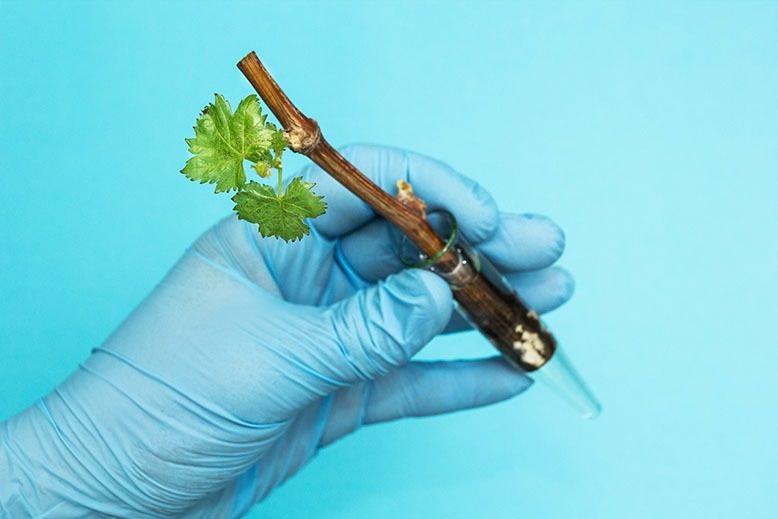
Growing grapes in the Garden State is not always a walk in the park.
Like all sectors of agriculture, wineries deal with a series of ever-changing challenges each year. Jersey winemakers contend with high levels of humidity and rainfall, cold winters, diseases, and pests like the dreaded spotted lanternfly—variables that tend to be less prevalent in vineyards on the West Coast.
There are no hard-and-fast rules regarding what you can and cannot grow in New Jersey, but winemakers realize that some things are better suited to our climate than others. Traditional wine grapes such as pinot noir and cabernet sauvignon, for example, tend to be more finicky and susceptible to disease.
Of course, without a healthy, hearty wine-grape crop, wineries can’t make much wine—or money. To help ease some of that stress, many Jersey wineries are filling at least some of their vineyard rows with hybrid grapes. With names like chambourcin, vidal blanc and marquette, hybrid grapes are more resistant to diseases and harsh climates, making it easier for grape growers to yield a successful crop.
The only problem? Hybrids have long had a reputation for making mediocre wines. For decades, critics have claimed they can’t possibly produce high-quality wines with the same depth or subtlety as traditional European varieties. And until recently, they were largely banned in European wine regions—but that’s quickly changing.
Now, forward-thinking producers are proving hybrid grapes deserve a place in the vineyard and the glass. “These wines have always had their fans,” says writer Lenn Thompson, who has covered the East Coast wine industry for more than 20 years. “What has changed is that the objective quality of the winemaking has increased, and thus, wine geeks and gatekeepers have become more open-minded about the different qualities these grapes bring to wine. What was once written off as funky or foxy is now considered floral or savory.”
[RELATED: Unwind at NJ’s Most Scenic Tasting Rooms]
Created in grape-breeding programs at places like Cornell University, hybrid grapes are made by crossing European Vitis vinifera vines (the species responsible for well-known grapes like chardonnay and merlot) with species native to America such as Vitis labrusca or Vitis riparia vines. When breeding for hybrid grapes, researchers are looking to create a new variety with an appealing flavor that is also insect- and disease-resistant and can withstand harsh, inconsistent climates. Many believe that hybrid grapes will prove even more important as climate change continues to impact wine regions.
Because they are predisposed to withstand most pests and diseases, growing them is generally an easier, more hands-off experience. At Beneduce Vineyards in Pittstown, owner and winemaker Mike Beneduce is always finding ways to farm more sustainably. “[We plant] hybrids like chambourcin in addition to traditional varieties because of their ability to grow on our site with fewer farming inputs,” he says. “They also have the advantage of giving winemakers a bit more creative freedom because consumers aren’t necessarily looking for a classic style associated with these grapes.”
Take Beneduce’s Chambrusco sparkling wine. Using Jersey-grown chambourcin to make a dry, fizzy red in the style of an Italian lambrusco, it’s a mashup of different cultures, tradition and places. It’s the best of both worlds—the old and the new—just like the hybrid grape from which it’s produced.
No one knows New Jersey like we do. Sign up for one of our free newsletters here. Want a print magazine mailed to you? Purchase an issue from our online store.



